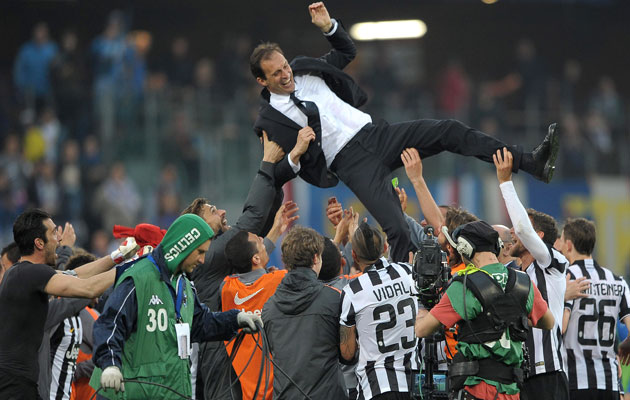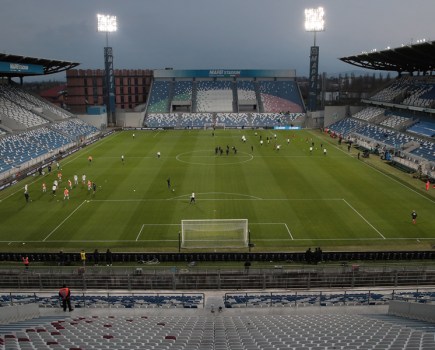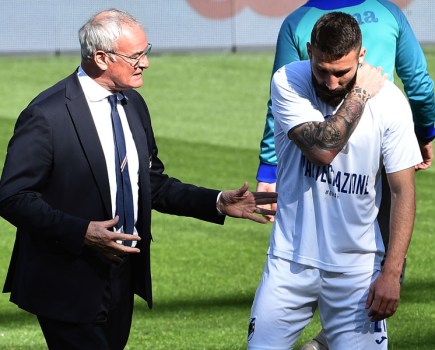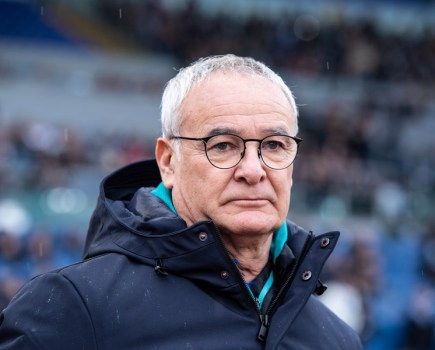When newly appointed Juventus coach, Massimiliano Allegri, turned up at the club’s Vinovo training centre for the first time last July, he was greeted with a most unfriendly reception. Using far from parliamentary language, a number of diedhard fans chose to remind him of his past allegiance to rivals Milan, telling him loud and clear that they did not want him.
On the morning after the Old Lady qualified for her first Champions League Final in 12 years, by drawing 1-1 away to Real Madrid, one wonders just what those “expert fans” are thinking now. Mind you, to be fair, even Allegri’s greatest admirers were not predicting a Champions League Final appearance last summer.
The 47-year-old Allegri, of course, had been dramatically and urgently airlifted into the job just hours after his predecessor, Antonio Conte, had sprung a huge surprise by resigning in the wake of three consecutive, title-winning seasons at Juventus. Six months earlier, after a 4-3 away defeat by minnows Sassuolo, Allegri had been sacked by Milan, then in 11th place, fully 30 points behind Conte’s Juventus.
Allegri’s renaissance with Juventus symbolises their thus far all triumphant season, one in which they are still on course for the League title, Italian Cup and Champions League treble last pulled off by the Jose Mourinho-coached Inter Milan in 2010. Last July, when Conte unexpectedly resigned, many critics were immediately predicting a difficult season for the Old Lady.
Without their guiding light, Juventus will lose their way, especially since the new man at the helm has not picked a single player in this squad. However, that was to underestimate Allegri’s coaching qualities, first shown at the top level with Cagliari between 2008 and 2010 and more dramatically with AC Milan where he won the Serie A title in his first season in 2011.
It was former Juventus and Italy coach, Marcello Lippi, who pointed out this week just how cleverly (and diplomatically) Allegri took over the Old Lady. For a start, he did not change any of the many things that already worked more than well for Juventus, thus not treading on famous toes.
For a second, bit by bit, as the season progressed, he has added his own concepts. Where Conte’s Juventus tended to be 100 per cent “up and at them”, Allegri’s team is more “Italian” in that it likes to pause, slow down the pace every now and then, in order to “administer” a game. Lippi also points out how, under Allegri, the team has become more flexible, able to switch from 4-3-1-2 to 3-5-2 line-ups in the course of a match.
Allegri, of course, was a fortunate man in that he inherited by far the strongest, best balanced squad in Italian football. He was even more lucky on the home front as one by one and in manifold different ways, all his major Serie A rivals dropped out out of the race, allowing Juventus to have the league title effectively wrapped up by the end of February, thus leaving them time and space to concentrate on their Champions League campaign.
In the wake of last night’s qualification, Allegri could have been forgiven if he had opted to chide those who had doubted in him. He might also have chosen to make noises about his, as yet, un-renewed contract. In his Tuscan way, however, Allegri was too busy thinking about Juve’s next important appointment, the Italian Cup final against Lazio next Wednesday, May 20.
“At the moment, I’m not thinking about that [contract renewal] just as I am not thinking about the Champions League final because I have got to prepare well for our Italian Cup final game,” he said, adding in relation to the 1-1 draw: “We had to go out there and take the game to them, otherwise they would have crushed us, that was the only way to go. Had we not missed our final pass on a number of occasions in the second half, we might well have even won here tonight”







